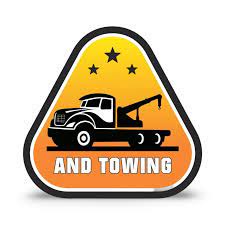In the hustle and bustle of everyday life, encountering a situation where your vehicle needs a tow is never on the agenda. Whether it's a flat tire on a deserted road or a sudden breakdown in the middle of rush hour traffic, knowing the ins and outs of tow truck near me operations can be a saving grace. Let's delve into the world of tow trucks, understanding their functions, and knowing when it's time to call for assistance.
The Basics of Tow Trucks
Tow trucks, also known as wreckers or breakdown trucks, are specially designed vehicles used for transporting disabled, improperly parked, impounded, or otherwise indisposed vehicles. They come in various sizes and configurations, each tailored to handle different types of towing tasks.
Types of Tow Trucks
- Flatbed Tow Trucks: These trucks feature a flat platform that tilts and lowers to the ground, allowing vehicles to be easily loaded onto the bed. They're ideal for transporting vehicles with minimal risk of damage, especially those with low ground clearance or those involved in accidents.
- Hook and Chain Tow Trucks: Traditional hook and chain tow trucks utilize a hook and chain system to secure the vehicle being towed. While effective for short-distance tows, they're less commonly used today due to the potential for damage to the towed vehicle's frame or body.
- Wheel-Lift Tow Trucks: Wheel-lift tow trucks employ a metal yoke that fits under the wheels of the towed vehicle and lifts it off the ground. This method is gentler on the towed vehicle than hook and chain towing and is often used for light-duty towing.
How Tow Trucks Operate
When a vehicle becomes immobilized due to a breakdown, accident, or other reasons, tow trucks swoop in to provide assistance. The process typically involves several key steps:
Assessment of the Situation
Upon arrival at the scene, the tow truck operator assesses the situation to determine the best course of action. This involves evaluating the condition of the vehicle, assessing any hazards present, and considering the most suitable towing method.
Securing the Vehicle
Once the assessment is complete, the tow truck operator secures the disabled vehicle for towing. Depending on the type of tow truck and the condition of the vehicle, this may involve attaching straps, chains, or a wheel-lift mechanism to ensure safe transport.
Towing the Vehicle
With the vehicle securely attached, the tow truck operator transports it to its destination. This could be a repair shop, impound lot, or other designated location specified by the vehicle owner or authorities.
When to Call for Tow Truck Assistance
Knowing when to call for tow truck assistance can prevent further damage to your vehicle and ensure your safety on the road. Here are some common scenarios where towing may be necessary:
Mechanical Breakdowns
If your vehicle experiences a mechanical failure such as engine problems, transmission issues, or brake failure, it's essential to call for tow truck assistance. Attempting to drive a vehicle with mechanical issues can exacerbate the problem and put you at risk of an accident.
Flat Tires
While changing a flat tire is a basic skill every driver should possess, there are instances where a spare tire is unavailable or the tire damage is too severe to repair on the spot. In such cases, calling for a tow truck to transport your vehicle to a repair shop is the safest option.
Accidents
In the event of a collision or accident that renders your vehicle undriveable, it's crucial to contact a tow truck immediately. Even minor fender benders can cause hidden damage that compromises the safety and drivability of your vehicle.
Conclusion
Tow trucks play a vital role in assisting motorists during times of distress on the road. Understanding how tow trucks operate and knowing when to call for assistance can help ensure a swift and safe resolution to unexpected vehicular issues. By familiarizing yourself with the basics of tow truck operations, you can navigate roadside emergencies with confidence and peace of mind.
FAQs (Frequently Asked Questions)
1. How much does tow truck service typically cost?
- Tow truck service costs vary depending on factors such as the distance towed, type of vehicle, and time of day. It's best to inquire about pricing with local tow truck companies.
2. Is roadside assistance the same as tow truck service?
- While roadside assistance may include services such as jump-starts, tire changes, and lockout assistance, tow truck service specifically refers to the transportation of disabled vehicles.
3. Can tow trucks handle all types of vehicles?
- Tow trucks come in various sizes and configurations, allowing them to tow a wide range of vehicles, from compact cars to heavy-duty trucks and RVs.
4. How long does it typically take for a tow truck to arrive after calling for assistance?
- Response times can vary depending on factors such as location, traffic conditions, and demand for service. Most tow truck companies strive to provide prompt assistance to customers.
5. Are there any safety precautions to take when waiting for a tow truck?
- While waiting for a tow truck to arrive, it's essential to move your vehicle to a safe location if possible, such as the shoulder of the road. Turn on hazard lights, stay inside your vehicle, and avoid standing near busy traffic lanes.


No comments yet